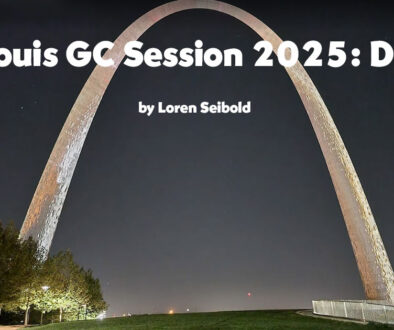How Will Changes in United States Supreme Court Impact Religious Liberty?
30 June 2018 | With the retirement of Justice Anthony Kennedy from the highest court in the United States last week a political battle will begin in Congress and across the country. Kennedy has been for many years the “swing vote” on the court, playing a key role in a number of landmark decisions.
For Adventists, the concern is how a change in the political make-up of the high court which interprets the Bill of Rights and other parts of the nation’s constitution, will impact religious liberty. And because the majority of the Adventists in the U.S. are from ethnic minorities, there is also concern about the attitude of the court toward minorities.
“Justice Kennedy served as a voice of moderation on the Court in recent years, after the retirement of Justice O’Connor, and was willing to call the balls and strikes regardless of the politics of the situation,” Michael Peabody, an Adventist attorney in Los Angeles who writes a regular newsletter on religious liberty, told Adventist Today. “His decisions were based in the law and not ideology, and most would sometimes agree with him and at other times disagree. You could tell, for instance, in his concurring opinion in Trump v Hawaii, released on Tuesday, that he really hated to go with the majority but he thought the law granted the executive branch wide immunity. I still think the issue of animus was relevant as it was in Masterpiece Cakeshop, but Kennedy went with his interpretation of the law even though he was not comfortable in doing so.”
Peabody also pointed out that Kennedy “is the last Reagan appointee on the bench, and the fact that his departure is lamented so much by the Democrats is evidence of how far this nation has shifted toward the right. Frankly, given the current political climate, I don’t think that a moderate like Kennedy would be appointed or survive the vetting process in 2018, even though his approach is exactly what the nation needs.”
It is reported that U.S. President Donald Trump has a list of more than two dozen possible candidates to fill the vacancy. But, there is a long process to go and the Senate must agree to whomever the president nominates before a new justice is sworn in. Three years ago when President Barack Obama nominated a replacement after the death of Justice Antonin Scalia, the Senate refused to act for about 18 months and it is entirely possible that something similar might happen again.
In addition to whatever politics may play out, there is the detailed research that will be done into every judicial decision the nominee has ever made, every political and business relationship and every speech given or document written. Adventist experts on the law and on religious liberty and/or social justice issues will have plenty of opportunity to assess the impact that the nominee may have on the concerns of Adventists.
Adventist Today will not attempt to report the political processes involved in this decision, but will report on specific information that is relevant to Adventist principles and concerns. Our Comments feature will provide opportunity for readers to ask questions and express their opinions. The editors are also willing to receive articles and letters by email at atoday@atoday.org. Put “US Supreme Court” in the subject line and be sure to include your full name and a brief identification as well as an address to be contacted at. Adventist Today will withhold your identity from publication, if you ask, but it will not publish material from unidentified individuals.




